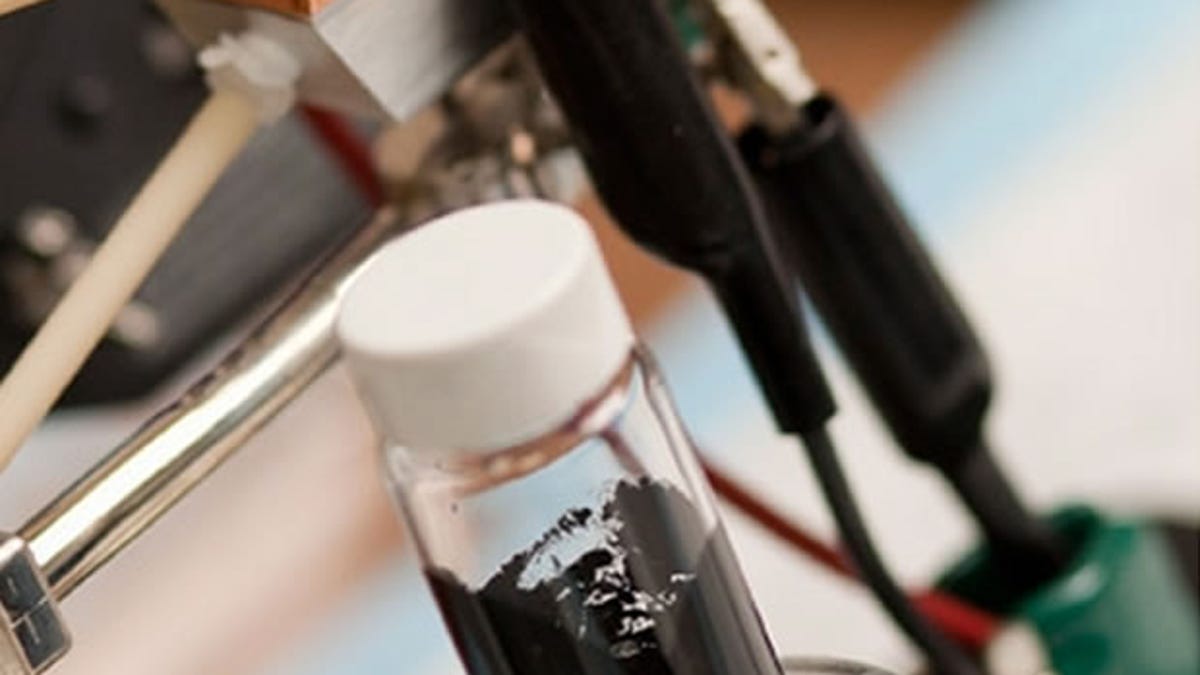Liquid flow battery could slash electric car charge times
A liquid battery that could allow electric cars to be recharged in minutes at existing petrol stations has been created by MIT scientists.

If we've said it once, we've said it roughly two or three dozen times: electric cars are a long way from mainstream adoption. Their limited range, long recharge times and prohibitive pricing all mean they're more suited to Dharma H Ippie than Joe P Ublic.
That could soon be about to change, however, if scientists at 24M Technologies and MIT get their way. They're working on a super-affordable semi-solid flow battery, dubbed Cambridge Crude, that could allow an electric car to be recharged in minutes using infrastructure already in place at petrol stations.
The Cambridge Crude battery system uses two separate containers -- one containing the negative cathodes and the other the positive anodes, both suspended in a black liquid. As the positive and negative portions are pumped through the system, they combine in a third container to exchange ions and create electricity.
Once electrons in the paste are exhausted, it can be recharged from the mains as normal or the fluid can be pumped out and swapped for new, fully charged sludge.
The makers of Cambridge Crude say speed of recharge isn't the only ace up its sleeve. It also has a far greater capacity than current lithium-ion batteries, which means a tank of this highly concentrated liquid electricity could drive a car for greater distances than we expect from today's electric vehicles. It's cheap, too. Current estimates suggest the paste could provide energy at a cost of less than $100 (£60) per kilowatt hour.
For reference, the 24kWh battery pack in the Nissan Leaf costs as much as £19,000, according to reports.
Development of Cambridge Crude is in its early stages, but the project has attracted $10m of funding from two venture capital firms. This will be pumped into the project until 2013, at which time its developers hope it'll be ready for trial use in electric cars.
Could this be the shot in the arm electric cars need to reach mainstream acceptance? Only time, a tonne of investment, and your feedback in the comments section below will tell.
Image credit: Dominick Reuter, MIT